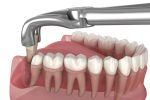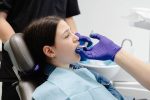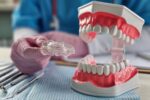Yes, a crowned tooth can hurt, even long after the procedure. While crowns are designed to protect damaged teeth, they can sometimes cause or hide issues that lead to discomfort. Getting dental crowns in NW Calgary is a common way to restore function and appearance, but knowing what pain means can help you act fast and protect your smile.
What Causes Tooth Pain Beneath a Crown? Top Reasons Explained
Not all crown-related pain is the same. It can be mild or severe, and the reasons behind it vary:
- Tooth Decay: Bacteria can get under a crown and cause decay in the natural tooth structure.
- Gum Inflammation: Poor oral hygiene or poor crown fit leads to inflammation of the gum tissue covering it.
- Bite Difficulty: An overhigh or crooked crown will result in jaw pain and chewing difficulty.
- Nerve Irritation or Infection: If a root canal is not done or fails, the nerve inside can become infected.
- Loose or Cracked Crown: A Loose or cracked crown puts your tooth at risk, leading to pain or sensitivity.
If you’re unsure of the exact cause, a dentist in SW Calgary can take X-rays and examine the crown and tooth structure underneath.
Dental Crown Sensitivity And Pain: What’s Normal vs. What’s Not?
There is generally some sensitivity shortly following a crown being placed. You may have sensitivity to eating something hot, cold, or sweet, but this typically fades within a few weeks to a few weeks.
However, chronic sensitivity or pain can mean something more severe:
- A crown is not sealed properly
- Damage to the nerve
- Hidden infection or decay
If this occurs, schedule an appointment with a local dentist to prevent further harm.
Relieving Dental Crown Pain: Pain Under Dental Crown Causes
If your crowned tooth hurts, the following are some things that you can do at home until you can have a dentist visit:
Use sensitive toothpaste
- Rinse with warm salt water to decrease swelling
- Stay away from extremely hot or cold foods and liquids
- Take over-the-counter pain medication (such as ibuprofen)
- Wear a nightguard if you are a bruxer
However, these are temporary fixes. The ideal way to find and fix the root cause is through a professional check-up.
Pain Symptoms and What They Might Mean
Here is a handy summary of pain types and probable causes:
- Mild pain while chewing: Biter issue — may require an adjustment
- Sensitivity to warm or cold: Bare dentin or inadequate seal — verify crown fit
- Harsh, short pain: Irritation of the nerve — could require a root canal
- Throbbing pain: Deep infection or decay — go in for emergency care
- Tenderness of the gums: Gum inflammation or crown fit problem — cleaning or realignment required
No More Crown Discomfort – Find Relief Today!
Crown discomfort can be frustrating, but it’s often fixable with the right care. Knowing the signs and causes helps you act early and avoid bigger problems.
At Heritage Park Dental, our trained professionals await your call to examine your crown, soothe your discomfort, and safeguard your oral well-being. Book today and discover the comfort and power of caring, gentle dental care!









